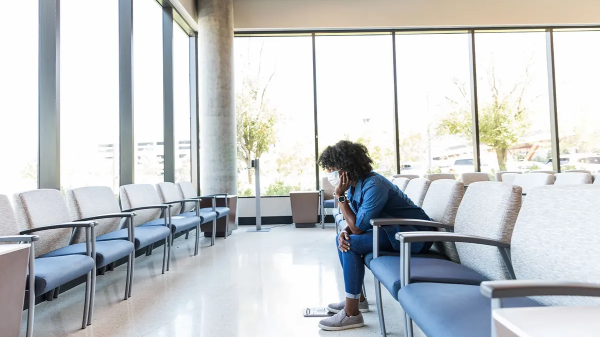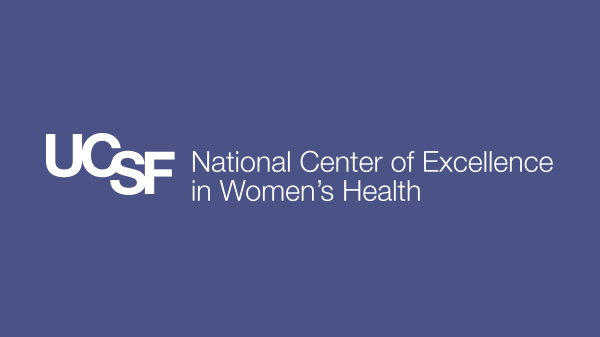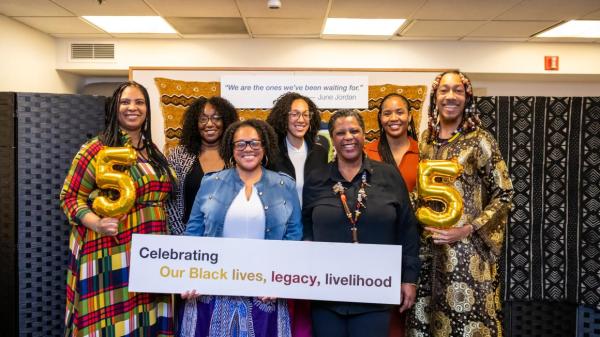By Kim LaPean and Diane Ngo
There is a chance that in every lecture, laboratory, Zoom meeting, town hall audience or shuttle bus ride, someone around you is battling a mental health challenge or knows someone who is struggling.
ABOUT THE PROJECT
The Faces of Ability II – Mental Health Resilience project aims to de-stigmatize mental health in the UCSF community.
Explore stories that showcases students, staff and faculty sharing their personal experiences with mental health, videos covering three areas of mental health: depression/anxiety, family member/caregiver and postpartum; and a poster series featuring quotes.
Mental illness affects one in five people or 47.1 million in the U.S., according to the American Psychological Association. The nonprofit group Bring Change to Mind reports that one in four people will be affected by a mental illness at some point in their lives and more than half of people living with a mental illness will not seek help because of the stigma associated with it.
Since mental health disorders are usually invisible, making it difficult to address, a team across UC San Francisco has decided to do something about it.
Tim Montgomery, director of Student Disability Services and a member of UCSF’s Committee on Disability Inclusion, says that students need more support around mental health. He is working with others, including Diane Ngo, program manager for UCSF’s Department of Surgery, to bring more visibility to this issue for everyone.
In 2018, the Committee on Disability Inclusion (CDI) published the Faces of Ability – In Their Own Words project to bring attention to those in the UCSF community with disabilities. Due to an overwhelming positive response, Montgomery and Ngo joined forces turning their focus to mental health challenges by launching the Faces of Ability II – Mental Health Resilience campaign in October 2020 as part of Disability Awareness Month. The goal of the campaign is to address mental health stigma and push a culture where we can openly discuss and encourage those needing support to seek it by sharing stories of resilience and hope.
Addressing Stigma and Shame
Disability – and specifically mental health challenges – touches and/or will touch many people at some point in their lives. The goal of the Faces of Ability II – Mental Health Resilience campaign is to humanize and bring attention to mental health.
“The main message we want to convey is that you are not alone,” says Ngo. “You do not have to suffer in silence. There are resources available, especially at UCSF, to help anyone in need of assistance.”
The campaign draws attention to available mental health resources at UCSF and beyond. The campaign website features a list of mental health and support resources at UCSF as well as community resources to help the BIPOC and LGBTQ communities.
The main message we want to convey is that you are not alone. You do not have to suffer in silence. There are resources available, especially at UCSF, to help anyone in need of assistance.
DIANE NGO, PROGRAM MANAGER FOR UCSF’S DEPARTMENT OF SURGERY
“When we take great care of ourselves, we can take great care of others,” said Montgomery.
When Ngo and Montgomery sent out a request for stories from those who have been impacted by mental health issues, they hoped a few people would be brave enough to participate. Despite that fact that there was an overwhelmingly positive response, only 15 people took the risk to share their story. Fellow staff, faculty and learners candidly shared their journey of challenges and resilience, mental health myths, and what has helped them.
Some still struggled with being identified. “This is an issue that is near and dear to my heart, but sadly I do not feel able to share my own journey as we still live in a world where that would have a significant, negative impact on my career here at UCSF,” said one person who preferred to remain anonymous. “We need to get these stories out there to effect change and yet putting them out there may put people at risk.”
HOW TO GET HELP
The campaign strives to bring visibility to resources. “When we take great care of ourselves, we can take great care of others,” said campaign co-chair Tim Montgomery. The website features a list of mental health and support resources at UCSF as well as community resources to help the BIPOC and LGBTQ communities.
Many people who originally reached out were not yet ready to tell their story, fearing reputational risk, stigma, or worse. For those who did record their stories, some felt discomfort in seeing their own stories.
The campaign’s theme of resilience speaks not only to surviving mental illness, but also in having the courage (and safety) to talk about it.
The “rate limiting factor in all of this is talking about it, disclosing and getting help. If we don't overcome the silence and shame and stigma, we've only done half the battle,” says Stephen P. Hinshaw, PhD, professor and vice chair for Child and Adolescent Psychology in the UCSF Department of Psychiatry and Behavioral Sciences and do-director of the Teen and Family Center for Psychiatry in the UCSF Weill Institute for Neurosciences.
Christina Mangurian, MD, professor and vice chair for Diversity and Health Equity in the Department of Psychiatry and Behavioral Sciences, agrees. “I wish people didn't have to feel like they were taking a risk to share their human experience, especially during the pandemic. So many people are struggling and they're struggling alone. If you have diabetes, you take insulin. If you're feeling depressed, you go to psychotherapy or get medications. People don't want to be stigmatized for seeking care.”
Dealing with Multiple Stressors
A global pandemic coupled with national social unrest and reckoning on race compounds the stressors for those already trying to manage mental wellness. Many people are dealing with the trauma of generations of structural racism and social injustices and violence. The intersection of racism and other forms of injustices are more obvious than ever.
RELATED ARTICLE
There’s A Lot of Uncertainty Right Now – This is What Science Says That Does to Our Minds, Bodies
“Because so many people worldwide are living in a state of anxiety – at least partly due to the effects of the pandemic, social unrest, and climate change – we might see more people showing these kinds of biased responses to new or preexisting potential threats,” said Aoife O’Donovan, PhD, an associate professor of psychiatry at the UCSF Weill Institute for Neurosciences who studies the ways psychological stress can lead to mental disorders like post-traumatic stress disorder (PTSD), in a UCSF article.
“In the short-term, these responses prepare us for positive action and protect us against the potential for injury and infection that came with stressors in our evolutionary past. In the long-term, prolonged activation of the biological stress response can have toxic effects on the brain and the rest of the body, increasing risk for both psychiatric disorders and chronic physical diseases.”
Creating a Culture of Support
At UCSF, leaders often point out that all members of the UCSF community should do their part to create a campus climate that supports everyone, embodying the PRIDE Values of professionalism, respect, integrity, diversity and excellence.
Leadership transparency helps reduce stigma, says Zach McLaughlin, SPT, a student in the UCSF/SFSU Doctor of Physical Therapy Program. “When people who have more authority, executives and people in higher places share about their challenges and struggles and are transparent and honest about mental health, it helps reduce the stigma.”
Managers and supervisors play a key role in employees’ wellbeing yet may not have the training they need to provide support to employees seeking help. In response to colleagues who are experiencing distress related to the COVID-19 pandemic the UCSF Department of Psychiatry and Behavioral Sciences, in partnership with UCSF Human Resources and the Center for Digital Health Innovation, launched COPE, a program specifically for UCSF faculty, staff, and trainees to provide an easy way for employees to get additional mental health assessment, treatment, and referral resources right away.
Mangurian also gives credit to students for leading the way and challenging the status quo at UCSF. “They help nudge us closer to our ideal at UCSF, where we care about the health, not just of the patients we serve, but the health of our whole community. We need to do better and this campaign is a step towards that more perfect union at UCSF.”
Share your story: We invite you to download and share the videos and images to join the conversation via social media or directly with your family, friends and colleagues. Share your own story using the hashtag #UCSFmentalhealth.




